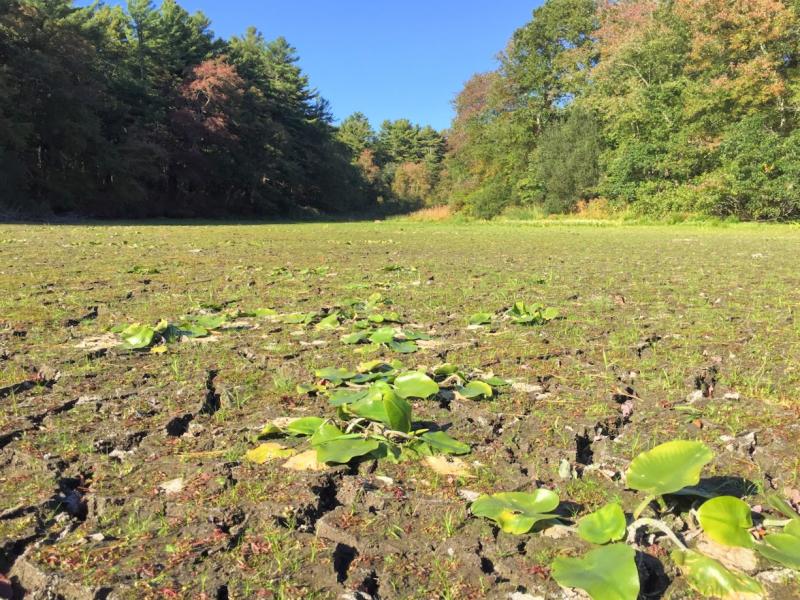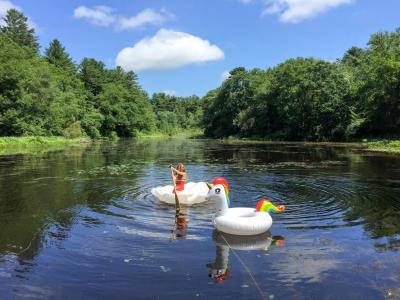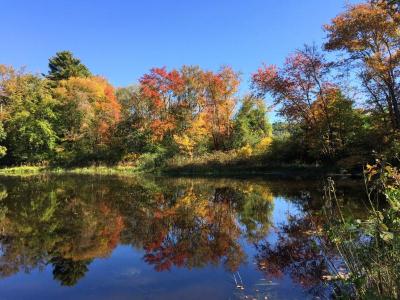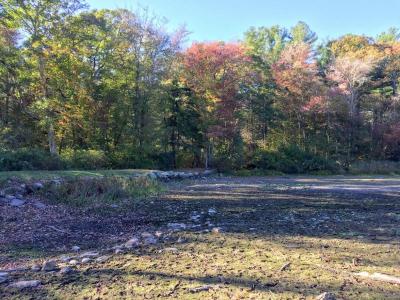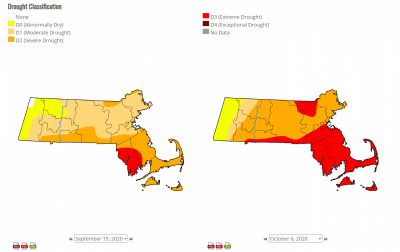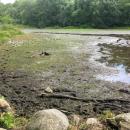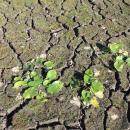‘Dramatic’ drop in ponds, streams as drought worsens
Ponds, streams, and rivers all over Dartmouth and the South Coast are drying out as this year’s drought — categorized by the US Drought Monitor as ‘extreme’ — continues unabated.
One pond in Gidley Woods, near Dartmouth Natural Resources Trust’s Paskamansett Woods property, has completely dried up.
Cakes of mud now line the former pond bottom, and grass is growing where once there was a lively freshwater ecosystem with river otters, fish, and waterfowl.
“It’s pretty dramatic,” said DNRT land manager Lina Vanderveer. “We’re seeing a lot of stressed trees. Even our pine trees, which usually fare pretty well in a drought, are starting to show signs of stress — a lot of them have yellow needles.”
According to US Drought Monitor data, most of Bristol County — one of the worst-hit areas in the state — has been experiencing a ‘severe’ drought since mid-August and an ‘extreme’ drought since mid-September.
“We’re about 42% below where we normally are at the end of September,” said Dartmouth Director of Public Works David Hickox. “We’ve noted in the past few weeks, the rivers and ponds and everything are just unlike we’ve seen in a long time.”
Hickox noted that his department tracks groundwater levels in the New Bedford area not only for drinking water levels in the town’s 13 wells, but also because the water levels affect the flow into the wastewater treatment facility.
Luckily, he said, the town has an agreement to purchase water from New Bedford when necessary. “We’ve been able to rely on New Bedford to supplement our supply this year, probably more than we’ve done in many many years,” Hickox said.
“This has been a difficult year as far as the amount of precipitation,” he added. “At the end of September, typically, we should have about three feet, 36 inches of precipitation...Our tracking shows about 21.”
Farmers all over town have struggled with lower crop yields this year due to lack of water.
Brian Medeiros of Dartmouth Orchards said in September that he lost 95% of his peach crop this year due to the lack of water as well as a late frost in May.
After losing a large portion of his apples too — and also due in part to pandemic safety rules — he made the decision to forego the traditional pick-your-own apples this year.
“It’s been a tough year,” he said.
At a recent tour of Round the Bend Farm on Allens Neck Road, Executive Director Desa Van Laarhoven noted how important the farm’s irrigation system was this year.
“I’ve been here for 12 years — this is the first year we’ve ever run out of water,” she said to the group. “Thankfully it was only for one day, but it was such a bummer.”
Back at Gidley Woods, owner Mary Waite remembered once in the past decade where the water in the pond got really low.
“But there was at least a tiny puddle at that point,” she said. “Whereas now, there hasn’t been anything for weeks.”
She added that her mother-in-law’s family lived on the spot since she was a young child. “She’s 77, and she said maybe four times she’s seen it like this,” said Waite.
‘Extreme’ drought can cause widespread crop loss and potential outbreaks of disease in wildlife, and some wells may run dry, according to the US Drought Monitor website.
If Dartmouth’s forests get too stressed from lack of water, Vanderveer said, the trees will weaken and come down more easily.
She noted that many DNRT forests had already been stressed in recent years from multiple rounds of invasive insects, including gypsy moths, as well as a previous drought around 2015.
“We’ve already lost a lot of our oak canopy,” she said. “And this will potentially have an additional impact on our forest composition.”
But, she added, change in the landscape is not necessarily bad, as different plants and birds can move in when a forest canopy opens up.
As for the wildlife, Waite noted that her kids rescued many of the turtles, although a family friend lost his shoe in the mud.
Unfortunately, she said, the fish died and were eaten by birds and other animals. “It was pretty gruesome,” Waite said.
“But the fish do come back,” she added. “It’s happened before!”



